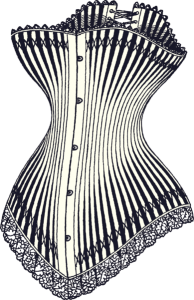I’d like to begin with a promise. I solemnly swear that I will never introduce a hero on page one, have him act heroic for five hundred and twelve pages and then, have him turn out to be the bad guy. I promise my heroine will not suddenly lose all her intelligence at the exact moment of crisis, just so she can be saved by a hero whose only superpower is common sense. Most of all, I vow that if I make you love a character, a good man, I will never tear him down just so I can show him defeated and destroyed.
And now, an admission. My first draft of this post included a lot of ranting about a certain episode of Doctor Who. I filed it away because it’s not nice to rant in public, but I got it out and dusted it off because of the premier of Torchwood: Miracle Day. Out of respect for spoilers, I’m not going to talk about specifics. Instead I’ll sum up: characters I know and loved changed drastically, in a way that didn’t keep with the canon of the show. The writers probably intended for me to be intrigued, blown away, and captivated. That didn’t work.
I feel betrayed.
I feel like the time I invested was a waste, because if you’re going to change everything and not play by the rules, why did I bother learning them? I feel like I have to second guess everything I knew, and relearn everything about the characters. Will they still be the people I liked? I don’t know. Can I still count on them to act heroically or to be brave? Not sure.
I’ve found this a lot in fantasy fiction. Vampires can’t go out during the sunlight, except when it’s convenient for the author, oh wait, I mean when they’ve drank fairy blood. The magic spell book can only be opened by the hero, except when the villain forces it to open. The heroine will lose her magic if she sleeps with anyone, except when she really loves the hero.
It’s maddening. Authors create a world and, yes, they have full control over them, but don’t we also have a responsibility to our readers? My worlds are filled with contradictions, quiet housewives who know how to clean a machine gun, but they don’t contradict themselves. Books create a social contract between writer and reader. In my head it sounds like this: if I promise you a smart, strong heroine on the back cover blurb, I’m obligated to have her stay smart and strong most of the time. Yes, she can have a moment of weakness, and she can do dumb things, but she’ll stay true to who she is. Characters won’t radically change overnight without a good reason.
I’m not saying that an author can’t be creative or throw in an unexpected twist, those things make writing fun. That doesn’t make it okay to make book five a liar in book 11. If an important plot point of book five is how no one has seen a dragon for decades, book 11 shouldn’t casually mention a character rides dragons each summer.
Your readers will notice your inconsistencies and they won’t be happy about it.
I understand why authors do these things, but they feel like lazy writing to me. If a character is the villain, then for the bulk of the story there should be at least subtle hints of his dark side. Fears and doubts can be overcome, but not in a matter of seconds. Characters should develop over the course of the story, whether it’s in one book or a dozen, not magically in five pages. Storytellers get to be in charge, but they shouldn’t break their own rules.
